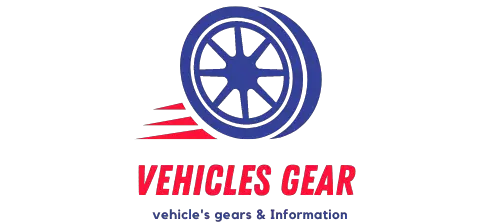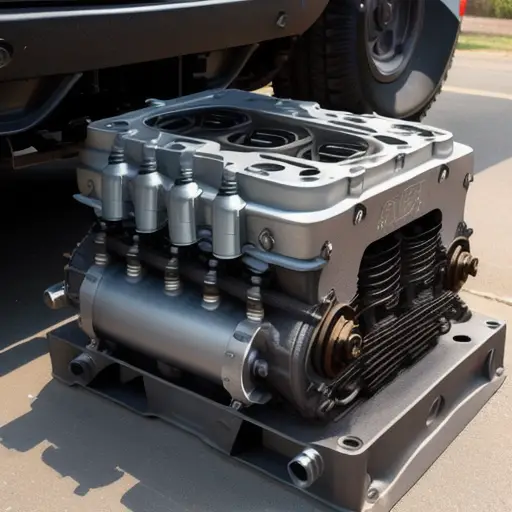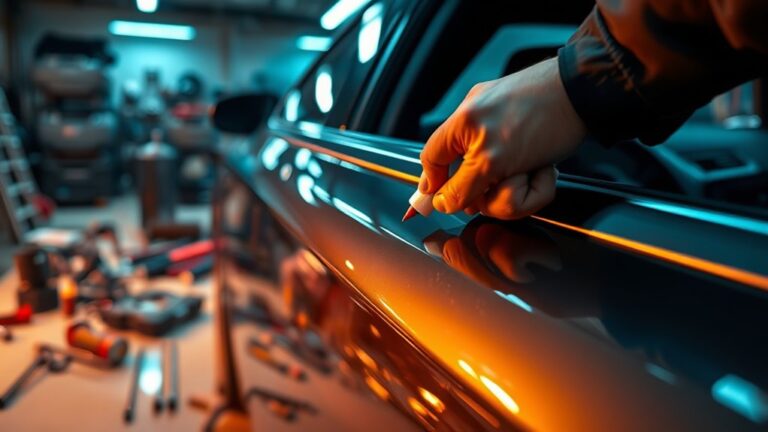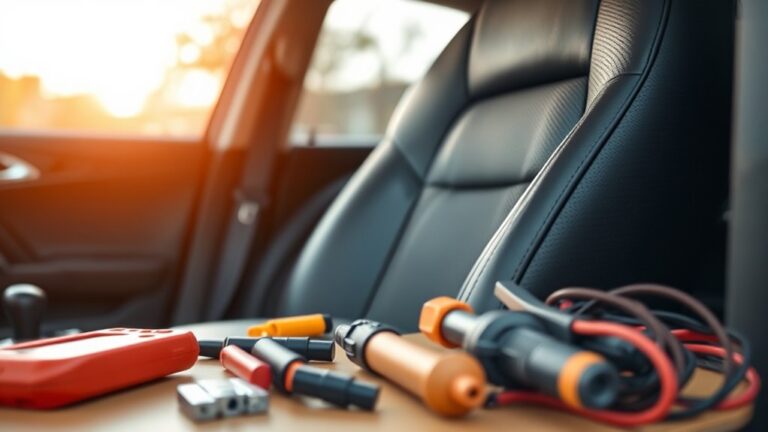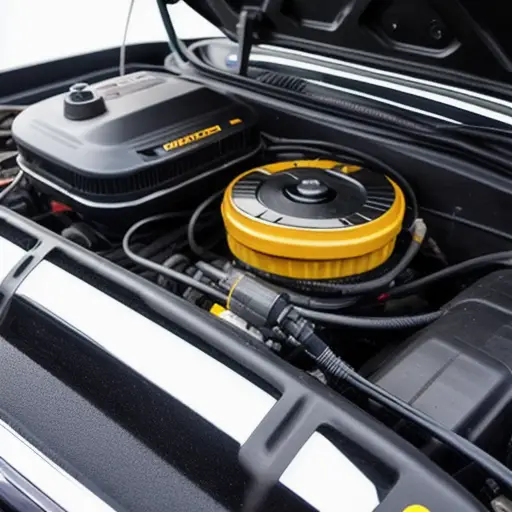Can You Powder Coat An Engine Block? (Safe and Effective?)
Powder coating is a popular method of coating metal objects, but can it be used to coat engine blocks? The answer is yes, it is possible to powder coat an engine block, but there are some important factors to consider before doing so.
Powder coating involves applying a dry powder to a metal object and then heating it to create a durable and attractive finish. While powder coating is commonly used on car parts like wheels and chassis components, the high heat and pressure inside an engine block can pose some challenges.
Before deciding to powder coat your engine block, it’s important to understand the potential risks and benefits. While powder coating can provide a durable and long-lasting finish, it can also create some potential issues like heat retention and interference with engine cooling. Additionally, the powder coating process can be more time-consuming and expensive than other methods of coating an engine block.
In this article, we will explore the pros and cons of powder coating an engine block, as well as the steps involved in preparing an engine block for powder coating.
Will The Powder Coat Warp When Exposed To High Temperatures?
Powder coating can withstand high temperatures, but the level of heat that an engine block can generate is beyond what typical powder coatings can handle. While powder coating can be used on certain engine parts like valve covers, brackets, and intake manifolds, it is not recommended for use on the engine block. The heat generated by the engine is intense and can cause the powder coating to break down, bubble, or even melt, potentially causing damage to the engine.
Additionally, the powder coating process involves curing the coating in an oven, which can also lead to warping or distortion of the engine block due to the high temperatures involved. Overall, powder coating an engine block is not a recommended practice and should be avoided to prevent potential damage to the engine. Instead, other coating options such as high-temperature ceramic coatings may be better suited for engine blocks.
Is Powder Coating The Engine Block A Lot Of Work?
Yes, powder coating an engine block can be a lot of work as it requires a lot of preparation to ensure a smooth and even finish. Before powder coating, the engine block needs to be completely stripped of all previous coatings, including paint, rust, and any other contaminants that may be present on the surface. This is typically done through a combination of sandblasting and chemical stripping.
Once the engine block is stripped, it needs to be thoroughly cleaned and dried to ensure no contaminants are left on the surface. Next, a special high-temperature powder coating needs to be applied in several layers to ensure even coverage. This process can be time-consuming and requires specialized equipment such as a powder coating gun and a curing oven.
Overall, powder coating an engine block can take several hours or even days to complete, depending on the size of the engine block and the complexity of the job. However, the result is a durable and long-lasting finish that can protect the engine block from rust, corrosion, and other forms of damage.
What Is The Cost Of Powder Coating An Engine Block?
The cost of powder coating an engine block can vary widely depending on several factors. These factors include the size and complexity of the engine block, the type and color of the powder coating used, and the location and experience of the powder coating service provider. In general, the cost can range from several hundred to several thousand dollars.
For a standard V8 engine block, the cost of powder coating can be around $500 to $800. However, if the engine block requires more preparation work, such as removing old paint or rust, the cost can go up. Additionally, if you choose a more specialized or custom powder coating, the cost can also increase.
It’s always a good idea to get a quote from a reputable powder coating service provider before committing to the job. They can give you a more accurate estimate based on the specific details of your engine block and powder coating preferences.
Which Other Parts Are Ideal Candidates For Powder Coating?
There are many parts in a car that are ideal candidates for powder coating. Here are some examples:
- Wheels: Powder coating can be a great way to enhance the look of your wheels while also providing added durability.
- Valve covers: Powder coating can give your valve covers a sleek, professional look that will set your engine apart from the rest.
- Suspension components: Powder coating your suspension components can help protect them from rust and corrosion while also providing a unique look.
- Intake manifolds: Powder coating your intake manifold can give your engine bay a clean, uniform look.
- Brackets: Powder coating brackets can help protect them from rust and corrosion while also giving them a clean, finished look.
- Roll bars and cages: Powder coating can provide added protection to roll bars and cages while also giving them a unique look.
Powder Coating An Engine Block Vs. Painting
Powder coating and painting are two popular methods for improving the appearance and durability of engine blocks. Here are some differences between the two processes:
Durability
Powder coating is known for its superior durability and resistance to chipping, scratching, and fading. The powder coating process involves applying an electrostatically charged powder to the surface of the engine block, which is then baked at high temperatures to create a hard, protective finish. Paint, on the other hand, is more prone to chipping and fading over time.
Appearance
Powder coating creates a smoother, more even finish than painting, and can be applied in a wide range of colors and finishes, including metallic and matte. Powder coating also has a glossy, almost plastic-like look that can make engine blocks stand out. Painting, while still capable of creating a smooth and even finish, has a more traditional, paint-like appearance.
Cost
Powder coating tends to be more expensive than painting, as it requires specialized equipment and materials. However, the added cost may be worth it for those who want a more durable and long-lasting finish.
DIY Vs. Professional Engine Block Powder Coating
When it comes to powder coating an engine block, it is possible to do it yourself or hire a professional to do it for you. Here are some factors to consider for both options:
DIY:
- Cost: Doing it yourself will save you money in labor costs, but you will need to purchase equipment and supplies. Powder coating guns and ovens can be expensive.
- Skill level: Powder coating requires some skill and experience to achieve a professional-looking finish. If you are new to powder coating, you may want to start with smaller projects before attempting an engine block.
- Time: Powder coating an engine block is a time-consuming process that requires a lot of preparation, including cleaning and sandblasting the block to remove any old paint or rust.
Professional:
- Quality: A professional powder coating service will have the equipment and experience to produce a high-quality finish.
- Convenience: Hiring a professional will save you time and effort, as they will take care of all the preparation and finishing work.
- Cost: Professional powder coating can be more expensive than doing it yourself, but it may be worth the investment for a high-quality finish.
Ultimately, the decision to DIY or hire a professional comes down to your skill level, budget, and desired outcome.
Is Powder Coating An Engine Block Worth It?
Powder coating an engine block can offer various benefits, including improved durability, resistance to corrosion, and a more aesthetic appearance. However, the decision to powder coat an engine block depends on personal preference and the intended use of the vehicle.
If you have an older car that is being restored or if you are building a custom car, powder coating the engine block can be a good investment in terms of appearance and protection against rust and corrosion. On the other hand, if you have a newer car that is used for daily driving, powder coating the engine block may not be necessary or cost-effective.
It is also important to consider the cost and time involved in powder coating an engine block, as it may require disassembly, cleaning, and preparation before coating. Additionally, it may be more practical to have a professional perform the powder coating to ensure a high-quality finish.
Powder coating an engine block can be a good option for those looking to improve the appearance and durability of their engine, but it should be evaluated on a case-by-case basis depending on personal preferences, intended use, and cost considerations.
How Long Does Powder Coat Hold Up On Engine Blocks?
Powder coating on engine blocks can last for many years, as it is a highly durable and resistant coating. However, the longevity of the powder coat will depend on various factors, such as the quality of the coating material, the application process, and the conditions in which the engine block operates.
If the powder coating is done professionally and the engine block is properly prepared, the coating can last for many years without showing signs of wear or degradation. Proper preparation involves thorough cleaning and removal of any existing paint, rust, or debris from the engine block.
It is also important to note that powder coating can withstand high temperatures, which is a critical factor when coating engine blocks that are exposed to heat. Powder coating has a higher heat tolerance than traditional paint, making it an ideal choice for engine blocks.
In general, powder coating can hold up on engine blocks for several years if it is done properly and the engine block is well-maintained. However, the specific lifespan of the coating will depend on various factors, such as the quality of the coating material, the application process, and the conditions in which the engine block is used.
Are There Drawbacks Of Powder Coating An Engine Block?
Yes, there are some potential drawbacks of powder coating an engine block that should be considered. One potential issue is that powder coating can add a layer of thickness to the engine block, which can impact the fit of certain parts or components. This is especially true for parts that need to fit together with tight tolerances. In addition, powder coating may not be as durable as other finishes in areas that are exposed to high levels of heat, such as around the exhaust ports. Over time, the powder coating may crack or peel off, which can detract from the appearance of the engine block and potentially lead to corrosion.
Another potential drawback of powder coating an engine block is that it can be more difficult to repair or touch up if it becomes damaged or scratched. In some cases, the entire coating may need to be removed and reapplied, which can be time-consuming and expensive. Additionally, not all powder coating shops may have experience working with engine blocks, which could impact the quality of the finish or the overall outcome of the project.
